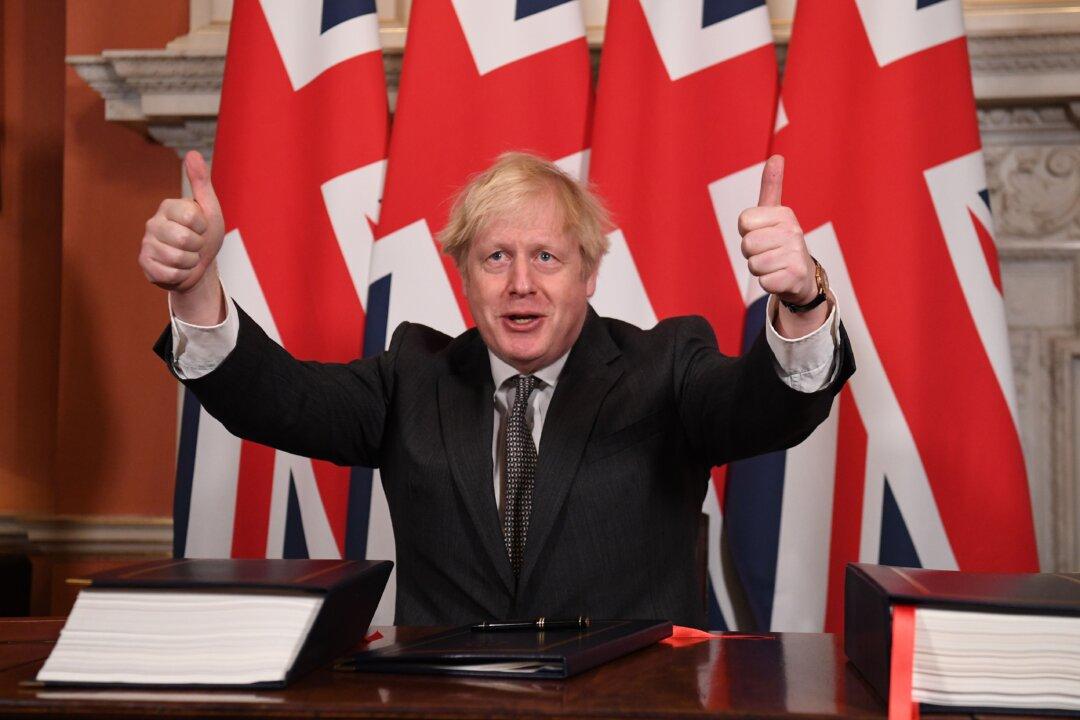British Prime Minister Boris Johnson signed the UK–EU agreement on post-Brexit trade and cooperation on Dec. 30, after it got parliamentary approval.
“I want everybody to understand that the treaty that I’ve just signed is not the end, it is a new beginning, and I think the beginning of what will be a wonderful relationship between the UK and our friends and partners in the European Union,” he said after signing the document.





